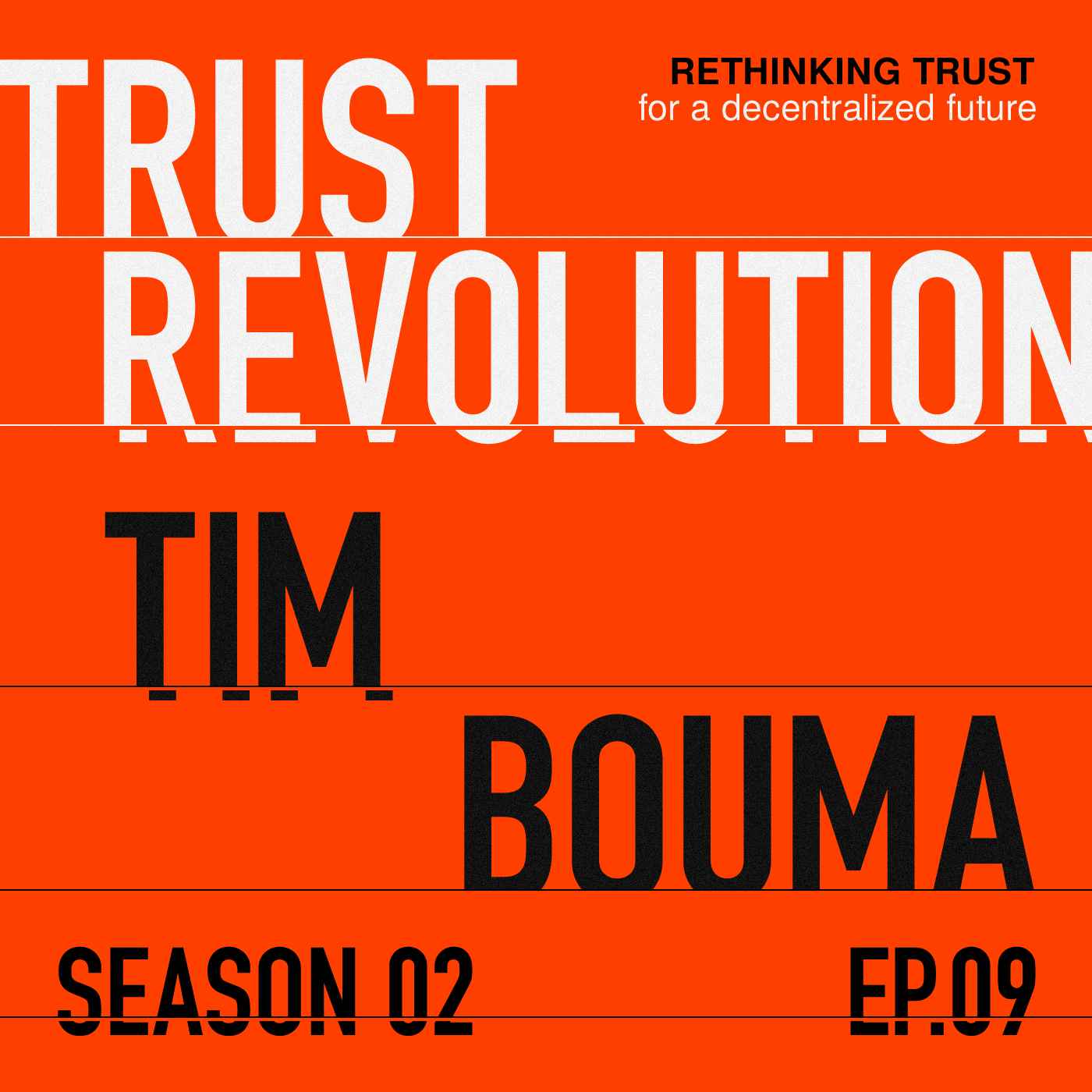Podcast Episode Details
Back to Podcast Episodes
S02E09 Tim Bouma — Digital ID architect builds the escape route
Season 2 Episode 9
“You cannot have trust without some form of governance. And governance is basically rules.” Tim Bouma has spent two decades inside government building Canada's digital identity framework. He's also building on Bitcoin. This is the conversation about what he's learned straddling both worlds, why centralized architecture creates problems that better policy can't fix, and why the future isn't about choosing between government systems and freedom tech—it's about understanding what each reveals about trust itself.
Episode Summary
Tim Bouma dissects the architecture of institutional trust from a unique vantage point: architecting Canada's Pan-Canadian Trust Framework while building Safebox, a Nostr-based wallet designed so no single entity can shut it down. Currently on interchange assignment from Treasury Board Secretariat to Canada's Digital Governance Council, Bouma inhabits both worlds simultaneously—developing government standards for digital identity while experimenting with permissionless protocols. The conversation reveals why this isn't contradiction but synthesis: every trust framework embeds assumptions about who verifies, who controls rules, and who bears costs. Traditional frameworks optimize for institutional coordination across jurisdictions; Bitcoin optimizes for permissionless participation. Bouma argues the choice isn't technical but political, and that understanding centralized systems deeply is prerequisite to building alternatives that actually work. His work demonstrates that simplicity isn't rejection of complexity—it's what emerges after you've wrestled with every edge case bureaucracy creates.
About the Guest
Tim Bouma is Special Advisor to Canada's Digital Governance Council, currently on interchange assignment from his role at Treasury Board Secretariat where he spent over a decade developing federal identity management policy. He was a key architect of the Pan-Canadian Trust Framework, working across federal, provincial, and territorial governments to create interoperable digital identity standards. For years, Bouma has maintained parallel work in both realms: developing government trust frameworks while simultaneously building on Bitcoin, Nostr, and peer-to-peer protocols. He's currently building Safebox, a wallet architecture designed so no single entity can shut it down, applying first-principles engineering to explore how cryptographic systems can provide trust without institutional intermediaries.
Key Quotes
“You cannot have trust without some form of governance. And governance is basically rules. And if you look at the etymology of the word governance, it means to steer.” — Tim Bouma
“Bitcoin is the simplest trust framework. It's just proof of work, signatures, and clear incentives. Everything else is somebody's opinion about how trust should work.” — Tim Bouma
“When you build identity systems for governments, you're building surveillance infrastructure whether you intend to or not. The question is who controls it and what constraints exist on its use.” — Tim Bouma
Key Takeaways
- Trust frameworks are governance mechanisms: Every trust system embeds rules about who can participate, who verifies claims, and who resolves disputes. The Pan-Canadian Trust Framework demonstrates how collaborative governance across jurisdictions creates complexity that ultimately serves institutional coordination needs over individual sovereignty—the more parties involved in framework design, the more compromise and overhead required to maintain consensus.
- Complexity preserves power: Legacy identity systems remain complex because simplification would expose how much control intermediaries extract. Government digital identity programs optimize for institutional efficiency (reducing fraud, streamlining service delivery) rather than individ
Published on 3 weeks, 1 day ago